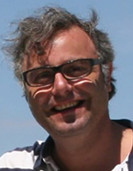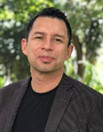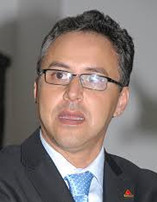Description
Driving the goal of “sustainability” for a city is absolutely key not only for its political leaders and urban stakeholders, but within the vision, development and support of Smart Cities around the world.
Today, over 3.5 billion people live in cities. That’s over half the world’s population, and this figure is forecasted to reach a staggering 5 billion people by 2030. The present and future of humanity is urban.
However, as city populations grow and urban areas extend, so do their complexities. The enormous challenges that city leaders face, on multiple-layered strategic and operational levels, is critical not only to providing local populations with their basic needs to survive: food and water, but necessities that include energy and connectivity; as well as services that provide the highest quality of life through access to the best education, healthcare, work opportunities, public safety & security. Then, add to this the additional challenges that hit cities across the world from climate change and natural disasters, and we can see that although digital transformation is certainly not a panacea, it is wholly critical.
Over the past 15 years, technology and data, in the form of “Smart Cities”, have already provided many of the solutions to face these challenges. There are 100s of cities termed, ranked or indexed by institutes such as the IMD, as “smart”, and the huge surge in smart city projects and solutions, from healthcare to power & energy; from education & training to governance; from mobility & logistics to connectivity; and from urban planning & infrastructure to engineering, Smart City frameworks, strategies, pilots, and commercial projects are already providing 1000s of success stories for the value of technology and data for urban digital transformation.
Yet, this initial success has only touched a part of the world. Over half of the world’s population today remains “unconnected” and without access to the Internet. A huge digital divide has grown in the past few decades, which has become even more evident under COVID and the need to work and study remotely. Global regions such as Africa, South Asia and Latin America, have not seen the immense advances and opportunities for growth that smart cities have brought to cities within Europe, the US, Australasia, and China. These unconnected people and areas of the world have not even started on their digital transformation.
For today’s smart cities or cities that have yet to reap the benefits that technology and data can bring, there is still great need to continue the work started in building resilience and sustainability. The United Nations Environmental Programme has reported that there are “ten years left to achieve the 17 Sustainable Development Goals – SDGs”, established in 2015, to address a global crisis on “climate change, biodiversity loss, and pollution, together with the economic and the social fragility they cause.”. There is a critical need to move towards a more sustainable, circular and resilient direction for the survival of people and planet. Technology and data, through smart cities, will continue to play a key role in determining the “how” these Sustainable Development Goals (SDGs) are met by 2030.
This Smart Cities track of the IEEE World Forum on IoT we will be focusing on the United Nation’s Sustainable Development Goal 11: “Sustainable Cities & Community” – that is, the commitment to deliver the further technological innovation and excellence required to achieve urban sustainability; to drive inclusive growth by fostering collaboration between leading smart cities and those cities that have not yet had the opportunity to start on the road to digital transformation. It is our aim in this track to share and present the state-of-the-art technologies being used by smart cities across the world and their success stories and help reduce the digital divide by giving space to cities that still have great strides to make, giving them a platform to present the challenges they face.
The Smart Cities track will cover the following vertical topics on sustainability in action:
- Water & waste
- Urban agriculture & food
- Power & energy
- Connectivity & data
- Education and training
- Healthcare & healthy lifestyles
- Local economies & communities
- Climate change, disaster mitigation & the environment
- Public safety & security
- Interoperability, standards & best practices
- Digital twins: modelling cities & decision support systems for leaders & stakeholders
Each topic will be given a full day at the IEEE World Forum on IoT 2022 event, through hybrid sessions (available onsite at our event location in Tokyo, and online via the event platform) with participating international speakers and panellists from local government, industry, academic, research and community organizations.
Each day dedicated to a single topic will cover the following format of sessions:
Keynote speaker
Each topic will be introduced by leading international experts, providing keynotes on their knowledge, experience, success stories and pain points, and State-Of-The-Art, in sustainability in action for cities
Action tank sessions
Three sessions will then follow under as “action tanks”, where the goal of these tanks is to review real city challenges and showcase successful solutions in practice, understanding the community impact and the needs for capacity building through education:
- Cities from around the world will present real challenges they face, and academic/research organizations will outline the technology state-of-the-art and skills needs
- Industry will offer insight into successful solutions available, and community stakeholder organizations will discuss the pros/cons of possible solutions
- Action Plans: each action tank will result in a set of “Action Plans” per topic to be executed in the 12-months after the event and will be reported on at the IEEE World Forum on IoT event in 2023
Chairs
Joel Myers – Chair of the Smart Cities WG for the IEEE IoT Initiative

Joel Myers is an IT engineer, entrepreneur and leading international technologist, specialising in the creation and development of innovation technology solutions in Cultural Heritage, Tourism, and Smart Cities, working internationally with state and local governments (Italy, UK, USA and Mexico), universities (including Harvard, UCLA, University of Virginia, Polytecnico di Milano, Universidad de Guadalajara) and industry (including a partnership with Google Inc., Mountainview, CA). His company, HoozAround Corp. (USA) owns and manages a digital platform called IoP (the “Internet of People”) that provides socio-economic recovery for cities, through a micro-currency called HooziesTM. It has been successfully piloted by the Mexican State Government of Jalisco to the 8.2 million people living and working there and its 1000s of small businesses to support the local economy during and post-COVID-19 and restimulate growth. The next municipality to launch the IoP platform is New York City in 2021. One of the end-products of the IoP platform is unique “real-time” urban intelligence that flows in from cities, on the population’s demographics, ongoing business transactions, mobility, health and social community interactions, based on the use of the micro-currency, HooziesTM and AI/ML. Real-time reporting and analytics then offers city leaders and stakeholders an in-depth understanding of the complex and intricate behaviours that makes a city function. Municipalities may closely monitor the effects of their operations and policies, and predict issues in order to avoid them. As Chair of IEEE IoT Initiative for Smart Cities, Joel Myers has been focusing his working group on the redefinition of the digital transformation of urban environments from a truly “People-Centric” focal point. Exploring the goals of the smart city industry movement juxtaposed with the need for humanity to remain connected as physical people. This “People-Centric” approach is leading to a far greater multi-disciplinary approach to collaboration between the technology industry of IEEE IoT and its communication with smart city leaders and stakeholders from: urban planning; infrastructure and engineering; finance and economics; community engagement; cultural heritage and tourism; sociology; law and governance; and so on. This new approach was reflected in the past 2 years of smart city sessions, speakers and panellists at the IEEE World Forum on IoT. Through his leadership of the IEEE IoT Global Cities Alliance (GCA), IEEE has developed a close “ongoing” collaboration and networking, between the Tech Industry and Smart Cities, on a worldwide and regional scale, in order to work together in understanding urban needs and priorities, and sharing and developing projects, results, best practices, and standards to support interoperability. One of the GCA’s core initiatives is the Observatory of Urban Intelligence. A cloud-platform of observable urban data, gathered through crowd-sourcing IEEE’s global network of universities and student branches, building unique models and correlations in understanding cities and the effectiveness of smart city solutions. This project is being developed jointly with the ITU-T under the United Nations’ “United 4 Sustainable Cities” initiative, and the United Cities & Local Governments organization. The second core initiative of the IEEE IoT GCA is promoting existing best practices and standards globally to city leaders, and developing new standards based on priority issues communicated by participating cities themselves. This initiative is run under the IEEE SA Industry Connection programme “Smart Cities Standards and Best Practices”, where IEEE and other standards organisations, like ITU-T, and smart cities work on a common agenda. The work carried out by Joel Myers has been published in international newspapers and journals such as the BBC, New York Times, Hong Times, the Hindu Times, Wired, and Forbes Magazine.
Victor Larios – Director of the Smart Cities Innovation Center at the University of Guadalajara, Mexico

Victor M. Larios followed a higher education degree program at the ITESO University in Mexico (B.Sc. in Electronics Engineering), graduating in 1996. In 1997 he received a M.Sc. at the Université de Technologie de Compiègne in France, and then went onto get a Ph.D. in Computer Engineering in 2001. Since 2004, has been a Full Professor at the Information Systems Department at the University of Guadalajara in Mexico. In April 2014, Dr. Victor M. Larios founded and became director of the “Smart Cities Innovation Center (SCIC)” at the University of Guadalajara, where he leads a group of researchers in Smart Cities and Information Technologies. The SCIC is a think-thank to help government, industry, and other academic partners to join efforts to improve the quality life and social well-being within an urban environment, by using technology as the core driver for transformation. His primary research interests are Smart Cities, IoT Distributed Systems, Networking, Multiagent Systems, and Data Visualization using Virtual Reality. Dr. Larios has published more than 70 papers in international scientific journals and conferences, and has published a book on “Serious Games”. Dr. Larios has ongoing collaborations in projects with High Technology industry and government, using design thinking and agile methodologies to accelerate technology transfer in living labs. As an entrepreneur, he is the founder and CIO of the consulting company, IDI Smart Cities, which collaborates with Advion Solutions LTD. in Finland. Its main activities are market research, promote scholarships to develop local talent, and support for international projects in Latin American countries and the European Union. One of its key efforts is to introduce the Circular Economic Model as a sustainability component for Mega-Cities. As a volunteer, Dr. Larios leads technically on the Guadalajara Smart City project for the government, and international ONGs, such as the IEEE. Victor M. Larios is a Senior Member of IEEE with 29 years of membership. Since 2013, he has led the “Guadalajara Core City” in the IEEE Smart Cities Initiative. Dr. Victor M. Larios is also a guest editor at the IEEE IoT Magazine and has been the IEEE International Smart Cities Conference (ISC2), 2020 general co-chair. Since July 2019 he has been working together with Joel Myers, Chair of IEEE IoT Initiative for Smart Cities, to develop the “Internet of People” (IoP). A people-centric approach to connecting people within cities to build opportunities and growth, on a business and social level. In March 2020 the first IoP pilot project was launched by the Mexican State Government of Jalisco in order to support and incentivise local economies and communities in recovering from the COVID-19 pandemic, through the IoP cloud/mobile platform and a pioneering digital micro-currency, called HooziesTM.
Mohamed Essaaidi – Chair of MEA Region for the IEEE Global Cities Alliance

Mohamed Essaaidi, Prof. Dr. IEEE Senior Member, received the “Licence de Physique” degree, the “Doctorat de Troisième Cycle” degree and the “Doctorat d’Etat” degree in Electrical Engineering and with honors, respectively, in 1988, 1992 and 1997 from Abdelmalek Essaadi University in Tetuan, Morocco. He is a professor of Electrical Engineering in Abdelmalek Essaadi University since 1993. He is the founder and former Chair of the IEEE Morocco Section since November 2004. He is the founder and the General Chair of Mediterranean Microwave Symposium (MMS) since the year 2000, the co-founder and the General Chair of Information and Communication technologies International Symposium (ICTIS) since 2005, and NATO Advanced Research Workshop on Information Security Assurance Co-director, Tetuan, June 3-6, 2005. He is the Chairman of the Scientific Committees of SETIT’07, SETIT’09 (Tunisia) and e-MEDISYS’07 (Morocco) and e-MEDISYS’09 (Tunisia) as well. He was also a member of the Organizing and the Scientific Committees of several international symposia and conferences dealing with topics related with RF, microwaves and Information and Communication technologies and their applications. Furthermore, he is a referee of the IEEE Transactions on Microwave Theory and Techniques, IEEE Transactions on Antennas and Propagation, Advanced Computational Electromagnetics Society Journal, European Microwave Association Proceedings, Serbian Journal of Electrical Engineering and Korean Electronics and Telecommunications Research Institute Journal. Professor Essaaidi is a member of IEEE Microwave Theory and Techniques Society, IEEE Antennas and Propagation Society, IEEE Communications Society and European Microwave Association. His biography was listed in Who’s Who in The World in 1999. He is also the co-founder and the current coordinator of the Arab Science and Technology Foundation (ASTF) RD&I network on Electrotechology. His research interests focus mainly on RF and microwave passive and active circuits and antennas for wireless communications and medical systems. He was the editor of the MS2000 Proceedings, the co-editor of the MMS’2002, ICTIS’05 and ICTIS’07 Proceedings and MMS’2006 special issue of the European Microwave Association Proceedings. He is the author and co-author of more than 80 papers which appeared in refereed specialized journals and symposia. He was the co-editor of the book “Information Assurance and Computer Security”, IOS Press, 2007. He was also the co-editor of the book “New Trends in Biomedical Engineering”, AEU Publications, 2004 and the author of 3 book chapters. He was a Guest-Editor of special issues of European Microwave Journal (2007), International Journal Of Computer Science Applications (2007,2008) and International Journal on Computer Science and Information Systems (2008). He is the Editor-in-Chief of the International Journal on Information and Communication Technologies (Serials Publications, India) since November 2007.


